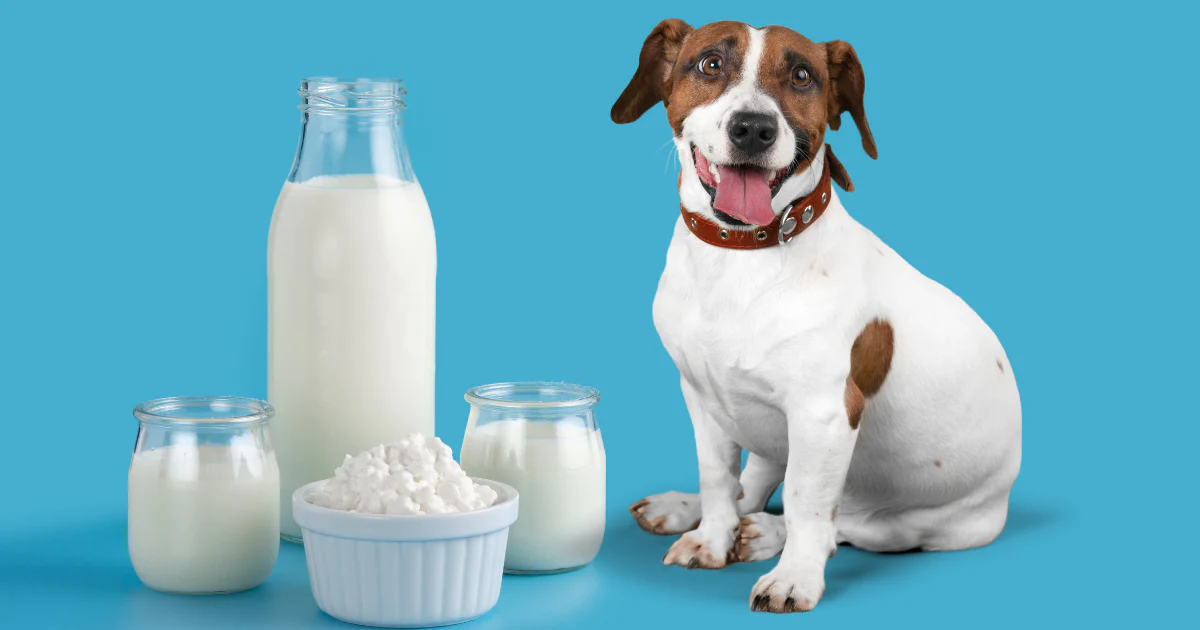Dogs are beloved members of the family and their health and well-being is of paramount importance. One question that many pet owners grapple with is whether milk is safe for their four-legged friends to drink. In this article, we explore the pros and cons of giving milk to your pup and provide some key insights into the issue so you can make an informed decision. We'll take a look at the various types of milk available, how milk affects digestion in canines, and considerations for lactose intolerant dogs. Ultimately, you'll have the tools and knowledge to decide if milk is a part of your pup's diet.
Types of Milk
When it comes to feeding your pup milk, there are a variety of types of milk available on the market. Cow's milk is the most commonly consumed type of milk in the world and is widely available in grocery stores. This type of milk has a high fat content, which can make it difficult to digest for some canines, especially pups and smaller dogs. On the other hand, goat's milk has a much lower fat content which can make it an easier to digest alternative for pups. Soy milk is an excellent source of calcium and is a popular choice for dog owners who are seeking an alternative to cow's milk. Almond milk is a dairy-free and vegan-friendly option that is rich in calcium, vitamins, and minerals. Coconut milk is becoming increasingly popular due to its natural sweetness and is a great choice for adding flavor to your pup's meals.
It is important to consider how milk will affect digestion when selecting a type of milk for your pup. While cow's milk is the most popular choice, it can be hard for canines to digest due to its high fat content. In contrast, goat's milk, soy milk, almond milk, and coconut milk all have lower fat contents and can be easier on a dog's digestive system. Additionally, if your pup is lactose intolerant, then dairy-free alternatives such as soy milk, almond milk, or coconut milk may be the best choice. Ultimately, when selecting a type of milk for your pup, it is important to consider their individual needs and how the milk will affect their digestion.
How Milk Affects Canine Digestion
When discussing the effects of milk on canine digestion, it is important to understand the difference between lactose intolerance and milk allergies. While milk allergies can cause serious health issues, such as vomiting or diarrhea, lactose intolerance is the inability to digest lactose, the sugar found in milk. As a result, lactose intolerant dogs may experience gas, bloating, or diarrhea after consuming dairy products.
The amount of lactose in milk affects how it might impact canine digestion. Most dogs can tolerate small amounts of milk, due to an enzyme in their saliva that helps them break down the lactose. However, drinking too much milk can cause diarrhea and other digestive upset. It is best to limit milk consumption to no more than 1 cup per day for small dogs, and no more than 2-3 cups for large breeds.
It is also important to consider the type of milk you are giving your pup. Cow’s milk is the most common option and is packed with essential nutrients like calcium, protein, and healthy fats; however, if your dog is lactose intolerant, goat’s milk or lactose-free milk may be a better option. Additionally, there are several brands of milk that are specifically formulated for dogs and provide a balanced diet. Ultimately, by understanding the types of milk available, the impact it can have on digestion, and your pup’s individual needs, you can make an informed decision about whether milk is an appropriate part of your pup’s diet.
Considerations for Lactose Intolerant Dogs
When it comes to dogs and milk, it is important to consider the possibility of lactose intolerance. Lactose intolerance occurs when the body does not produce an adequate amount of lactase, an enzyme necessary for the digestion of lactose, a sugar found in milk. If a dog is experiencing digestive symptoms such as gas, bloating, diarrhea, or vomiting after drinking milk, this could be an indication of lactose intolerance.
If your pup is lactose intolerant, there are plenty of delicious, nutritious milk alternatives that they can enjoy. Almond milk and coconut milk are both delicious and lactose free options that provide a good source of nutrients and vitamins that are beneficial to your pup. You can also try blending soft vegetables with water to make a nutritious, lactose free treat.
For dogs that are not lactose intolerant, some dairy products, such as yogurt and cheese, can be good sources of protein and calcium. However, it is important to keep portion sizes small to avoid overfeeding. If you’re looking for a lactose free way to provide these essential nutrients, try blending soft veggies with a bit of water to create a nutritious, lactose-free treat.
Ultimately, you can make an informed decision about whether or not to give your pup milk by having a better understanding of the pros and cons of milk consumption, the types of milk available, and the potential considerations for lactose intolerant dogs. With this information, you can make a decision that is best for your pup's health and well-being.
